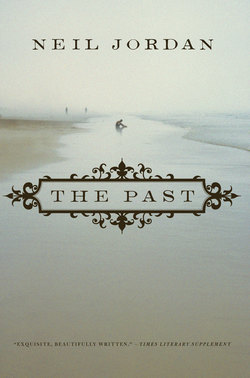Читать книгу The Past - Neil Jordan - Страница 13
Оглавление7
SO RENE WAS born on the First of February 1915, St Brigit’s day, across from the promenade which would have been by then quite empty of umbrellas.
‘BUT WHY CALL her Brigit when the whole point of their stay there was to hide the fact? Una reached Dublin three months later and even then she claimed the child was premature. Which was how the myth grew up of Rene’s extraordinary eyes and hair, her miraculous maturity. The child they saw in that station, whom Una claimed was at the most two weeks old was in fact a three-month-old bundle of vitality. I would say she was quite a tender mite, a fragile copy of the father, with blue eyes and hair that even at that age showed its blondness. No wonder they were all amazed by this two-week-old marvel with a straight, intelligent stare and hair that didn’t stick to its crown like some black secretion but stood up, half-blonde, and even dared to curl. For her first few months she was a source of constant amazement among all those who saw her, a disjointed sense of awe and misapprehension was foisted on her which was fed of course by her mother, terrified that they would discover that this wonder of hers had been conceived out of wedlock, maybe in an Amiens Street hotel after a Conradh na Gaeilge meeting. I discovered this later through a First Communion form and a senile nun who didn’t notice any difference. I mean, beautiful as it is to be born on St Brigit’s day, the advantages are more than outweighed by the stain of illegitimacy. Which is why they stayed in England in the first place, why they took three months to travel home. And why they arrived in Westland Row Station carrying her in a Moses basket like a two-week-old.’
STANDING IN THE corridor of glass with the escaping steam behind him, holding the head of the wickerwork basket and his wife still half-hidden in the steam, would he have shown the germ of the person he would later become and if he did would anyone have noticed? The knot of family, cousins, friends and half-friends, they stood beyond the steam waiting for it to clear. He watched their shapes emerge, moving to embrace him.
The steam died round his boots and he carried the basket behind her. They seemed like any couple. There would have been a passing sweetness in being home, greater than their differences. He quickly ensconced himself in his father’s legal practice and helped to make it one of the leading firms in the city.
And she, Lili, if I have heard you correctly, began again where she had left off and rose to become the star of a new style of theatre, peasant in emphasis, nationalist in theme. She resumed her Irish classes and acquired an enviable blas. Her hair, which was of that arresting blonde shade that people would later remark on in her daughter, she dyed black. The eulogies to her talents in the papers of the time (with the exception of the Irish Times, which was Unionist in politics) are so frequent that they are hardly worth quoting. Suffice it to say that the qualities critics found to praise in her were sociological rather than aesthetic. She was praised for her ‘modesty of bearing’, her ‘passion of utterance’, but most of all for an elusive quality which was referred to variously as her ‘Irishness’, her ‘Gaelic splendour’, her ‘purity of soul’, a quality which, the Freeman’s Journal claimed, was ‘representative of what is best in Irish Woman-hood’. And thus, in one of those qualitative confusions which are perhaps inevitable in an emergent drama, not to mention an emergent nation, her public praised her as if she were the part itself.
